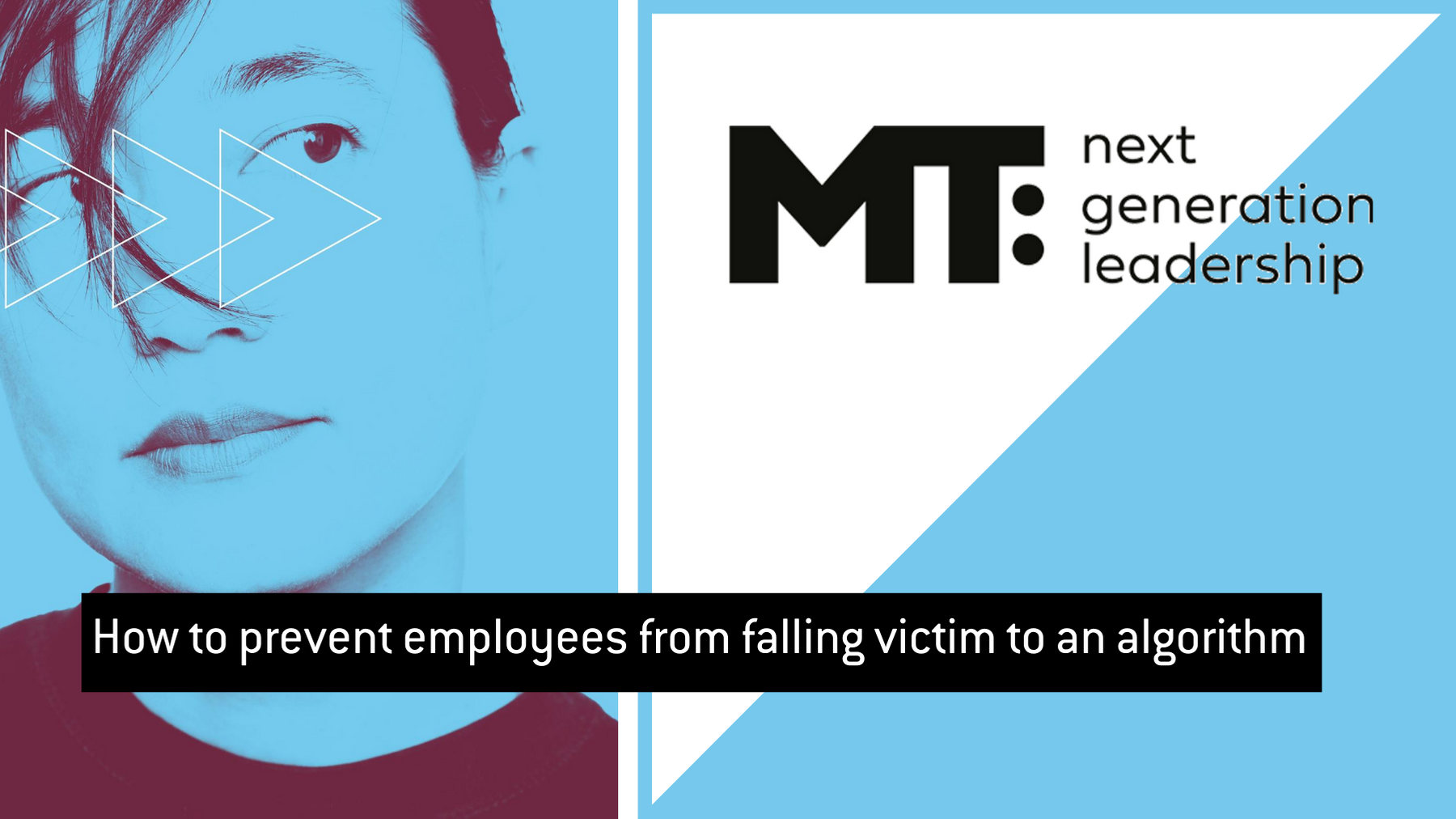
Algorithms can assist managers in monitoring and improving productivity. Those who use algorithms incorrectly can become an inhuman manager who spoils the job satisfaction and productivity of employees.
Algorithms play an important - sometimes even dominant - role on many floors. The automated instruction series are critically examined. For example, algorithms regularly appear to contain prejudices . If we rely too heavily on algorithms, we forget to think for ourselves, which can lead to dire situations. Consider, for example, a navigation program that advises us to turn around in a dangerous place. Algorithms and artificial intelligence (AI), on the other hand, can also help to manage larger teams. "But that doesn't make you a better leader," warns Mike Walsh, author of The Algorithmic Leader and CEO of Tomorrow.
Modern Taylorism
Walsh argues that careless use of algorithms can lead to data-driven dystopia. He compares the increasing possibilities of algorithms with Taylorism. At the beginning of the twentieth century, Frederick Taylor was at the basis of a movement that wanted to approach business processes in the workplace in a scientific way. This was to lead to an optimization of productivity. Labor was divided into small, repetitive processes. With the stopwatch in his hand, Taylor recorded how fastworkers could throw iron bars in a wagon. He then set production standards based on this. Taylor's theories quickly gained popularity and were applied in the early twentieth century at Renault, Bosch and Siemens, among others. And of course at Ford. The car brand was fully committed to the assembly line. Because workers did not come to work, but work to the workers, the production rate could be determined by the conveyor belt.
Critics of Taylorism point out that workers alienate from work. Because they only perform short, repetitive tasks, they lose connection with the end product. Taylorists would see man purely as a production factor. There is no room for personal development and own initiative. Employees simply had to do what they were told to do. Walsh argues that algorithms are a modern variation of the dark sides of Taylorism. What is the use of applications that encourage employees to work in their free time? Or automatically sent emails when people log in five minutes late?
Algorithms not inherently bad
For example, there is regular criticism of the personnel policy that Amazon pursues in its distribution centers. Cameras constantly monitor order pickers. Toilet visits are timed. Unachievable goals have resulted in employees exhausting themselves to such an extent that they fell asleep in the workplace. The tech giant also has patents on a bracelet that monitors warehouse workers' movements. The wearable would enable employees to do their work more efficiently by means of vibration signals.
Algorithms are not inherently bad, according to author Walsh. He states that companies and managers should ask themselves what is better: do you want to limit employees in their independence and freedom through AI or do you want to use AI to coordinate autonomous teams. The answer to this question lies in the problem that the company is trying to solve. Nevertheless, Walsh believes that algorithms should primarily be used as a means to improve organizational structures and not as control mechanisms.
Veil of ignorance
He refers managers to the thought experiment of the philosopher John Rawls. Because people tend to reason out of self-interest, the American philosopher invented what is known as the "veil of ignorance." In this imaginary situation, no one knows their intelligence, ethnicity, gender, wealth position, etc. What choices would we make behind this veil? Would we find the algorithm a good idea if we were not the manager, but the distribution employee in the Amazon warehouse?
If the answer to that question is negative, you as a manager know what to do with the algorithm.

